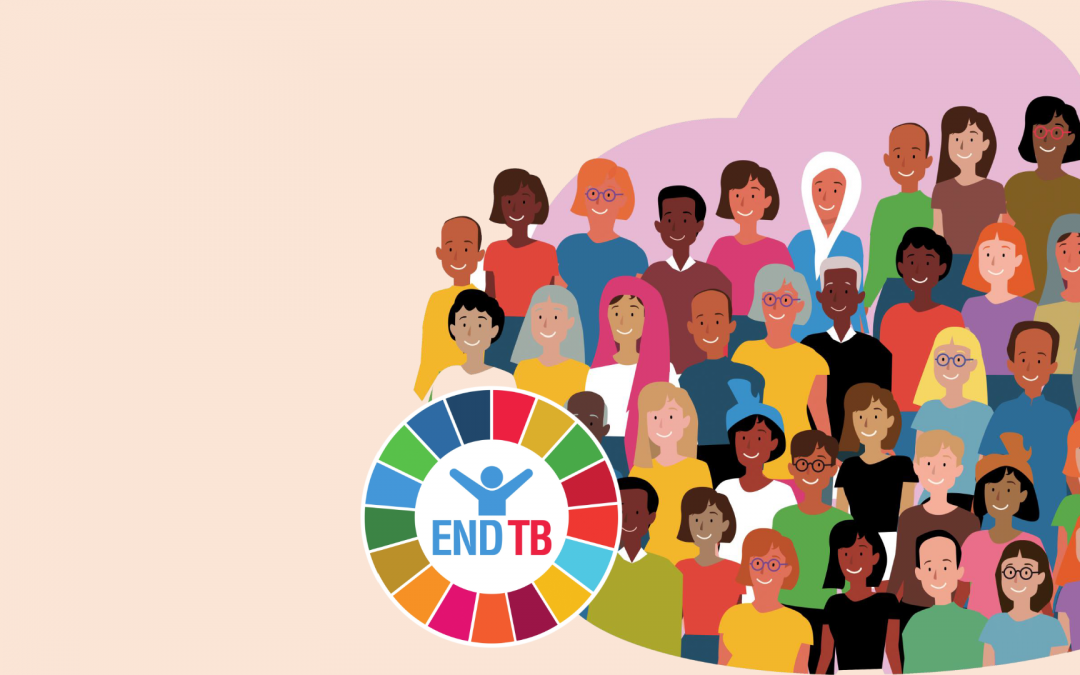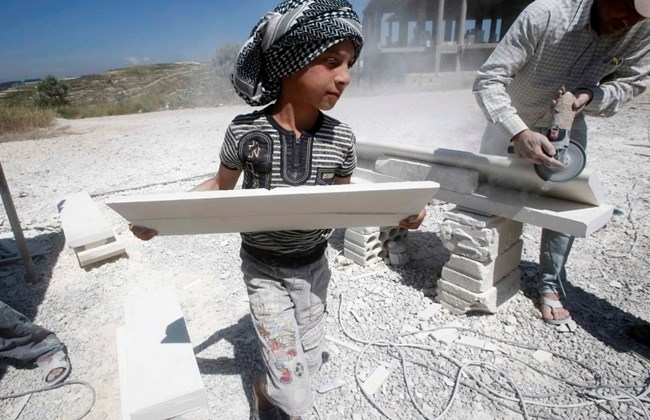
by Abed Estwani | Apr 15, 2022 | Visualization
Steve: “I would kill for – I would kill for sex! YES! KILL!”
The Board lights up with “KILL” as the no. 2 answer, the audience in the studio laughed, the audience at home laughed, and the video went viral of yet another successful episode of family feuds. Good job Steve, you are one hell of a host.
 That night, the audience in the studio went home after a good laugh. After all, it is all good, if it is just a joke, right? But guess what, this isn’t a joke. This is a reality that many women face on a daily basis. That’s already horrendous, yet there exist an even harsher and more terrifying reality.
That night, the audience in the studio went home after a good laugh. After all, it is all good, if it is just a joke, right? But guess what, this isn’t a joke. This is a reality that many women face on a daily basis. That’s already horrendous, yet there exist an even harsher and more terrifying reality.
Meet Fadimata,
 a young woman, married at the age of 18, a mother of two, and she spends her day roaming around carrying a basket over her head selling fresh produce to help support her family. She never got the chance to continue her education, but she’s doing her best to survive.
a young woman, married at the age of 18, a mother of two, and she spends her day roaming around carrying a basket over her head selling fresh produce to help support her family. She never got the chance to continue her education, but she’s doing her best to survive.
But once she gets home, that’s when her hell begins.
 She gets beaten up by her husband if she doesn’t service him sexually. Let that sink in. She goes back home… only to get beaten if she refuses to sex her husband.
She gets beaten up by her husband if she doesn’t service him sexually. Let that sink in. She goes back home… only to get beaten if she refuses to sex her husband.
If that wasn’t bad enough, wait for the uppercut.
She believes her husband IS justified for beating her when she refuses sex with him.
Now imagine that is YOU…
Unfortunately, more than 60% of women in Mali believe that a husband is justified to beat his wife if she refuses to have sex with him; quite. Similarly, countries like Guinea, Niger, Burundi, Chad, Senegal, etc… also experienced a relatively high rate of women accepting that notion.
 On the other hand, countries like South Africa, Albania, Dominican Republic, and Colombia had shown that the percentage of women accepting the notion of a husband being justified to beat his wife if she refuses to have sex with him is to be at 1% or less.
On the other hand, countries like South Africa, Albania, Dominican Republic, and Colombia had shown that the percentage of women accepting the notion of a husband being justified to beat his wife if she refuses to have sex with him is to be at 1% or less.
Drilling down into this alarming phenomenon, and trying to understand why such a phenomenon even exists, we discovered yet another factor that might play a significant role in that.
The dropout rate for female students from the educational system (especially at the primary level) is astronomically higher in countries where women believe in the notion compared to the countries where women do not share this notion.
 As such, one way to combat this notion is to heavily invest in the educational sector and facilitate accessibility in order to empower women and break these hellish chains.
As such, one way to combat this notion is to heavily invest in the educational sector and facilitate accessibility in order to empower women and break these hellish chains.
 However, as demonstrated by Burundi, while education might be key, it is not enough. It should be coupled with awareness and empowerment campaigns in order to reinforce the self-esteem and self-worth of these marginalized female groups.
However, as demonstrated by Burundi, while education might be key, it is not enough. It should be coupled with awareness and empowerment campaigns in order to reinforce the self-esteem and self-worth of these marginalized female groups.
Let’s work together to make this world a better place for all of us!!!


by nhe17 | Apr 14, 2022 | Dashboard
A pandemic that is targeting the under-privilege, as if the right of living and being protected from such a disease is dependent on one’s status and unfortunate living conditions.
Tuberculosis continues to be a huge peril disease against the human population and according to WHO, TB is the leading cause of death in infectious diseases killing over 1.5 million people around the world in 2020 alone, 95% of which is occurring in developing country.
The below is a reflection of the data from the world data index showing the uneven distribution of TB incidence per 100,000 in 2020 that is occurring. A steady decrease in developed countries , however a remaining major problem in developing countries.
The World Health Organization (WHO), following the guidelines of the United Nations’ Sustainable Development Goals (SDGs), plans to eradicate the pandemic by the year 2030. The goal is to reach a 90% reduction rate in the number of deaths due to TB by the year 2030, and 95% by 2035.
Actions to be taken:
- Allocate funding on providing chemoprophylaxis (the number one treatment for TB) to developing countries to increase access for the underprivilege and decrease spreading of TB.
- Adjust healthcare policies and increase campaigns for free BCG vaccination in developing countries , making it mandatory as with many developed countries
- Mass screening tests to detect dormant or active TB, to decrease spread especially with over-populated settings and among the immunosuppressants.
- Increase Awareness campaigns to educate the population on the signs and symptoms and importance of preventive measures to be taken for a better chance of survival.
The key to an end of the pandemic starts with you!
I am a healthcare worker and I urge you after this blog to do the following:
- Check your vaccination history on BCG, along with your family.
- Educate your self with the signs and symptoms: persistent cough with bloody secretions , severe chest pain and shortness of breath , weight loss and generalized weakness , fever and night sweats
- Tuberculosis may be dormant, meaning asymptomatic for years for that if you have never been tested, urgent medical screening is required.
- If you experience any of the signs and symptoms , seek immediate medical help
- Keep your distance when engaging in a conversation and avoid crowded places!

by Karim Ahmad | Apr 14, 2022 | Dashboard, Visualization
“The enemy doesn’t stand a chance when the victim decides to survive.” – Rae Smith
How Is It Justified?
Globally, 1 in 3 women have been subjected to partner violence, and it becomes worst when women consider this violence justifiable. Early marriage is a major reason that women think it’s okay to be beaten up by their spouses, usually, spousal age differences, power inequalities, un-continued education, and a lack of female autonomy are all common features of early age marriages. These factors have been linked to an increased risk of domestic violence and affected women’s awareness of their entitlement, self-esteem, status, and their sense of empowerment.
In most African countries and some Asian countries, women believed spousal violence is justified and that can be linked to high percentages of female adolescents out of school and early marriages in these countries.
Even globally numbers are still worrying, the average number of women who believed a husband is justified in beating up his wife is still Relatively high. With the average number of female adolescents out of school being steady over the past 22 years, marriages at a young age are still taking place and resulting in more domestic violence since spousal age difference can make women more vulnerable to health risks and social Isolation by creating power dynamics. These power dynamics can increase girls’ vulnerability to emotional, physical, and sexual abuse.
According to the WDI (World Development Indicators) data some of the justified reasons for domestic violence were:
- When women argue with the husband
- When she burns the food
- When she goes out without telling him
- When she neglects the children
- When she refuses sex with him
Taking Action!
So, you might ask, what can be done? Well, a lot actually. To start with, empowering young women are essential. This can be done through:
- Enhance girls’ access to a high-quality education
- Empower girls with information, skills, and support networks
- Provide financial assistance and incentives to young women and their families
- Educate and rally parents and the community members
Education is crucial in preventing females from marrying as adolescents. In fact, the longer a girl stays in school, the less likely she is to marry and have children before she toms 18 years old. Furthermore, education ensures that girls have the skills and information they need to find work and support their families. This can aid in breaking the cycle of poverty and preventing child marriages caused by extreme poverty and/or financial gains.
Final Recommendations
Education, economic status, and age gap are the main factors behind early marriages and domestic violence. It’s recommended to Promote education and economic opportunities for girls & Employ behavior change communication and community mobilization techniques to change social norms regarding age and marriage.

by Zahraa Berjawi | Nov 25, 2021 | Dashboard, Visualization
FROM “Man up, you can’t be depressed just because this happened!” TO “Why are you looking so sad and tired? Are you depressed? You can talk to me if you want..”
To begin with, according to the World Bank dataset on development indicators, it is clear that men’s average suicide mortality rate is significantly higher than females.

Surprisingly, males are three times more suicidal than females, reaching an average of 14.3 male suicides per 100,000 males, while 4.4 female suicides per 100,000 females.

But why is this the case?
 While comparing countries with high unemployment rates and countries with low unemployment rates, the following analyses were investigated:
While comparing countries with high unemployment rates and countries with low unemployment rates, the following analyses were investigated:
To begin with, in Countries with highest unemployment rates, the suicide mortality rates for both men and women are higher.
However, when faced with difficult economic situations:
- Females suicide mortality rates were higher by 150%
- Males suicide mortality rates were higher by 217%
This leads to the conclusion that men’s mental health tends to be more susceptible to financial burdens.
So, what should be done?
A potential solution would be providing unemployment benefits, which are governmental compensations that are provided for unemployed people. These compensations help secure a stable income after the layoff of an employee, and they improve unemployed people’s productivity in the labor market by improving job matching and connecting employees to employers.
In addition, this solution can be helpful in mitigating the impact of unemployment on the psychological wellbeing of people.
As the following illustration shows, both females’ and males’ suicide mortality rates are higher in countries with lower adequacy and coverage of unemployment benefits

More specifically, males’ suicide rates are 31% lower in countries with high adequacy and coverage of unemployment benefits.
Thus, in order to mitigate the males’ suicide mortality, several recommendations are suggested to be effective.
- First, it is highly recommended that suicide prevention groups intensify their focus on men and encourage them to express themselves and seek psychological help.
- Equally important, in countries with high unemployment rates, governments should work on providing unemployment benefits and ensure their wide coverage of the unemployed.
Thank you

by gwk01 | Nov 23, 2021 | Visualization
It was 11:00 am on a Monday when I saw a nine-year-old boy, Bilal, lifting heavy rocks in a construction site. How many Bilals, children who toil long hours for a low wage, deprive themselves of education, and endure frequent violence and abuse just to financially support their families, do we meet daily?
Based on a study conducted by the Lebanese ministry of labor in 2013, there are almost 180,000 children working in Lebanon. Today, Lebanon is experiencing a huge decline in its gross domestic income (GDI). GDI is an economical metric that showcases the nation’s social welfare, and its deterioration results in more people living below 50% of the median income, and vice versa.

Thus, poverty is increasing in Lebanon, and more children as Bilal are being robbed of their childhood. The Lebanese government and supporting international organizations can take many initiatives to save Bilal and his friends; however, not all might have a fast and radical impact on the children labor phenomena. While observing international cases, through World Development Indicators dataset, I noticed that countries, which most of their population have access to electricity, have a lower percentage of poverty; thus, a lower number of employed children, and vice versa.

When power resources are available to the nation, people will have access to technologies, especially the internet. There are numerous internet usages that can create life opportunities for the individuals; for example, Bilal can access the internet to enroll in educational programs.

Considering the above, I appeal to the government and concerned institutions to utilize all their endeavors in providing a sustainable electrical solution for our children to live a “normal” life and have the chance to prosper.













 While comparing countries with high unemployment rates and countries with low unemployment rates, the following analyses were investigated:
While comparing countries with high unemployment rates and countries with low unemployment rates, the following analyses were investigated:



